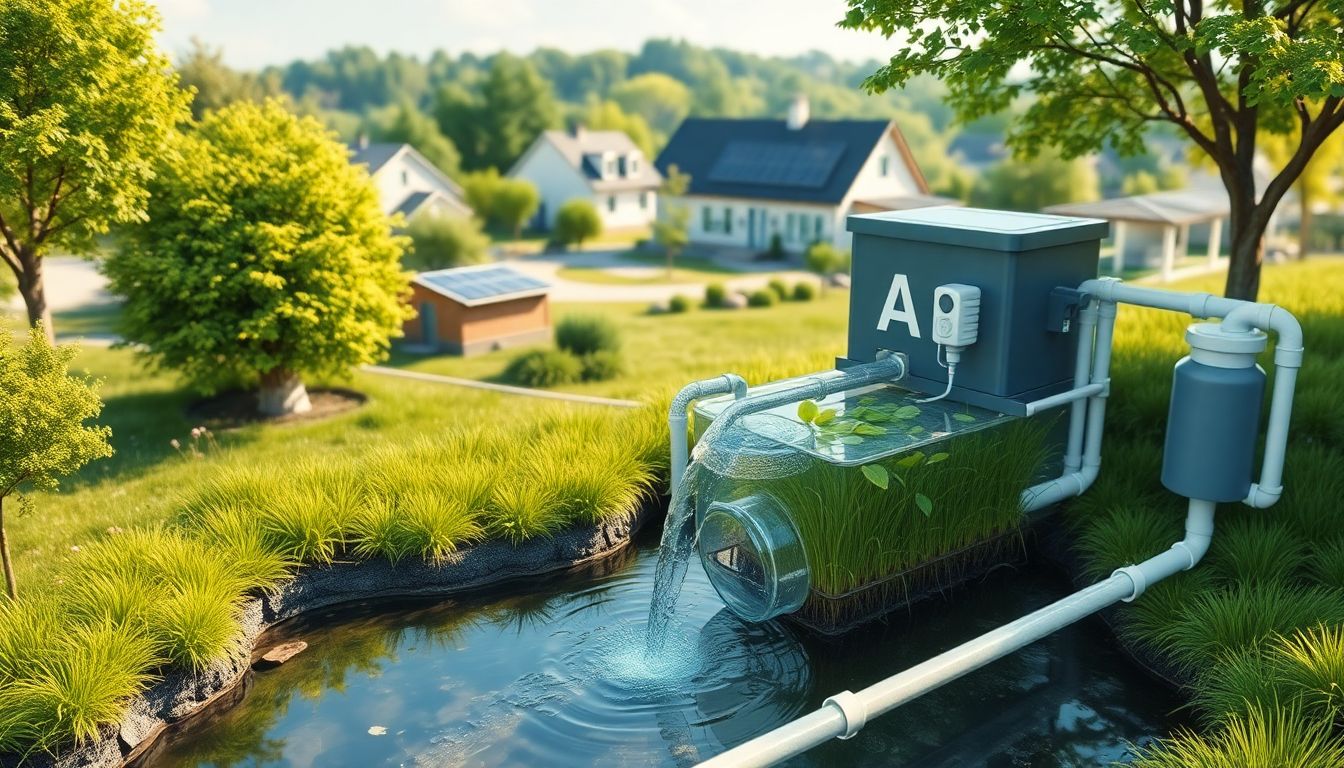India’s rapid urbanization and population growth have intensified the demand for effective wastewater management solutions. Traditional centralized wastewater treatment systems often struggle to keep pace with this burgeoning demand, leading to environmental degradation and public health concerns. In response, decentralized wastewater treatment systems (DEWATS) have emerged as a sustainable and efficient alternative, offering numerous advantages tailored to India’s unique challenges.
Understanding Decentralized Wastewater Treatment Systems
Decentralized wastewater treatment involves processing sewage at or near its source, rather than channeling it to a centralized facility. This approach is particularly beneficial for communities that are remote, rapidly expanding, or lack the infrastructure for large-scale treatment plants. By treating wastewater locally, DEWATS can alleviate the burden on centralized systems and provide tailored solutions to diverse communities.
Advantages of DEWATS in the Indian Context
- Cost-Effectiveness
Implementing DEWATS can lead to significant cost savings. These systems require less extensive infrastructure, reducing both capital investment and operational expenses. By eliminating the need for long-distance sewage transportation, DEWATS minimize energy consumption and maintenance costs.
- Scalability and Flexibility
DEWATS are inherently modular, allowing for scalability to match the needs of various communities, from small villages to expanding urban neighborhoods. This flexibility ensures that wastewater treatment keeps pace with population growth and urban development.
- Environmental Sustainability
By treating wastewater close to its source, DEWATS reduce the risk of environmental contamination. They promote water reuse for purposes such as irrigation and industrial processes, thereby conserving freshwater resources and reducing pollution.
- Reduced Infrastructure Dependency
Decentralized systems diminish the reliance on extensive sewer networks, which are often costly and challenging to maintain. This reduction in infrastructure dependency is particularly advantageous in areas where laying down extensive pipelines is impractical.
Challenges and Considerations
While DEWATS offer numerous benefits, their implementation is not without challenges:
- Community Acceptance: Successful deployment requires community buy-in and education to ensure proper usage and maintenance.
- Regulatory Compliance: Navigating local regulations and obtaining necessary approvals can be complex and time-consuming.
- Technical Expertise: Ensuring the availability of skilled personnel for installation and maintenance is crucial for the long-term success of these systems.
Case Studies: DEWATS in Action
Several initiatives across India have demonstrated the effectiveness of DEWATS:
- Saraswati 2.0 Project: This EU-funded project tested various decentralized wastewater treatment technologies in Indian communities, aiming to provide cleaner water and improve sanitation.
- Packaged Sewage Treatment Plants (PSTPs): Companies like SUSBIO have developed PSTPs that are compact, efficient, and suitable for decentralized applications, catering to both urban and rural settings.
The Path Forward
Embracing DEWATS can play a pivotal role in addressing India’s wastewater management challenges. By focusing on localized solutions, these systems not only enhance environmental sustainability but also contribute to public health and economic development. Collaboration among government agencies, private sector players, and local communities is essential to scale up the adoption of DEWATS and ensure their long-term success.
In conclusion, decentralized wastewater treatment systems offer a promising pathway toward sustainable and efficient wastewater management in India. Their adaptability, cost-effectiveness, and environmental benefits make them a viable solution to meet the country’s growing sanitation needs.
By Deep Bhagat,
Jr. Social Media Manager,
https://www.linkedin.com/in/deep-bhagat-188201315
The Biz Tree
https://www.thebiztree.com/

